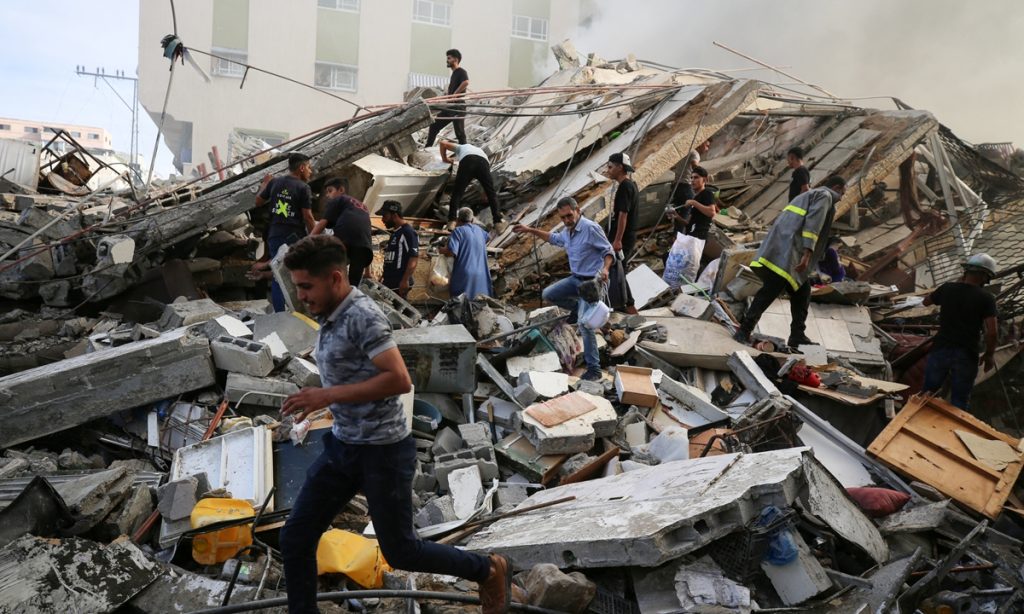Israel suffers great losses as Hamas secretly strikes

The sudden large-scale attack by the Palestinian Islamic Resistance Movement (Hamas) on Israel has sent shockwaves throughout the Middle East and the world.
Hamas has demonstrated remarkable secrecy and executed a sudden and powerful attack, catching Israel's Mossad and the US Central Intelligence Agency off guard. Not only did Hamas launch thousands of rockets, but they also conducted large-scale infiltration into territory controlled by Israel. In the eyes of the US and Israel, Hamas is seen as a "ragtag" band of terrorists, but their ability to organize such a massive operation without leaking any information is highly impressive and challenging.
Israel has suffered significant losses this time, with at least 100 people killed on the first day and approximately 900 injured. Moreover, videos have been released by Hamas showing captured Israeli soldiers. Hamas announced they captured the Israeli Army commander, Nimrod Aloni. Additionally, around 50 Israelis have been taken hostage, making these captives and hostages bargaining chips in the hands of Hamas. This situation is unprecedented in the Israeli-Palestinian conflict.
Israel is likely to carry out retaliation actions that go beyond airstrikes, and a ground offensive is highly possible. Prime Minister Benjamin Netanyahu has already announced that "our enemies will pay an unprecedented price." However, Israel will face challenges in targeting effectively because Hamas is not the same as the Palestinian Liberation Organization (PLO) of the past; they excel in urban guerrilla warfare with high flexibility. Besieging Hamas, as Israel did in Lebanon with PLO in 1982, will be difficult, and extensive bombings may harm many civilians, leading to international condemnation. Therefore, how Israel conducts its operations, from planning to execution, presents a significant challenge.
Many people ask why Hamas launched a comprehensive attack at this time. What triggered this attack is most likely the recent continuous small-scale conflicts between Israel and the Palestinians. Hamas wants to "settle the score" with Israel. However, from a strategic perspective, this is a decisive resistance by the Palestinians against the continuous development of the Middle East situation toward sacrificing Palestinian interests. During the Donald Trump era, the US shifted from mediating the Israeli-Palestinian conflict to a more explicit tilt toward Israel. In addition, more and more Arab countries are reconciling with Israel. Currently, the US is pushing for the normalization of relations between Israel and Saudi Arabia. The Palestinians cannot defeat Israel on their own, but they need to "create a scene" to break the current situation in the Middle East.
As long as there is conflict between Israel and Palestine, the vast majority of Arabs in the Middle East will naturally sympathize with the Palestinians. Emotionally, they cannot lean toward Israel, which will put pressure on Arab governments in the Middle East that hold a moderate attitude toward Israel.
Regarding the Middle East issue, there are different opinions. Overall, Israel wants to maintain a peace based on the existing reality. In the past, the entire Arab world supported the Palestinians in fighting against Israel, but now the Palestinians are almost fighting alone. The Palestinians are quite pitiful. Although the State of Palestine has been established and recognized by many countries, Palestinians' land is still occupied by Israel, and their sovereignty is incomplete. A large number of Palestinians live in refugee camps. They are a vulnerable group in the international community, and their grievances and anger are much greater than those of the powerful Israelis.